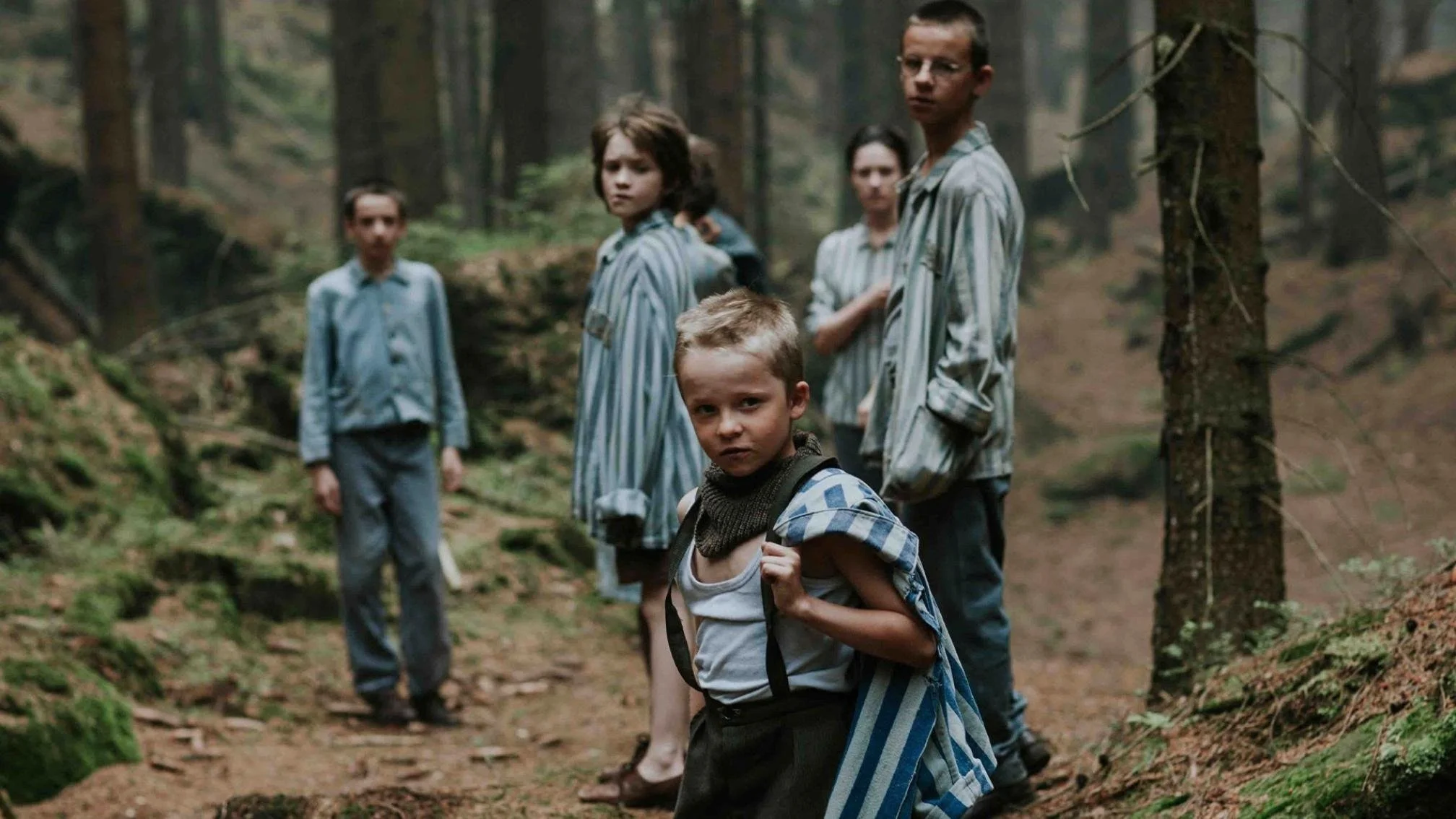Werewolf
A new kind of horror faces a group of orphaned children as they are trapped inside a villa by something nasty in the woods…
One has seen and read of many horrors of the Second World War and then a fresh detail jumps out to bite one in the throat. This Polish-German co-production opens as a concentration camp in Poland is being evacuated in February of 1945. While many of the remaining prisoners are shot down by their German hosts, a group of children are left behind in the confusion. And, when a Russian soldier walks into their dormitory, the young inmates immediately drop to the ground to carry out a gruelling drill of push-ups – as would be expected of them. Later, after they have been moved to an abandoned villa in the woods, the children learn that their travails are far from over: they now face the spectre of starvation and their own nightmares. Asked what his name is by the teenage Hanka (Sonia Mietielica), Hanys (Nicolas Przygoda) replies: “20-50-14.” Hanka herself attempted to take her own life by chewing at the veins on her wrists. Now, together – and without adult supervision – the children must learn to shed the conditioning that has been drummed into them.
The film opens as bleakly as it could – with a girl having her throat ripped out by a German shepherd. The film’s publicity would have us believe that Adrian Panek's accomplished fable is a horror film set in the aftermath of the war. While there are many moments of horror, this hardly fits in with the genre, and neither is it a werewolf movie. Horror that exploits the atrocities of the Nazis is a despicable brand, exemplified by the vile and obscene Overlord (2018). Werewolf is smarter than that, using the tropes of the genre for its own creative ends. Comparisons to Lord of the Flies are also misleading as, if anything, the abandoned children here attempt to find order in the chaos that they have been handed. Besides one scene in which they destroy the finery of the mansion in a Bacchanalian orgy fuelled by alcohol, they pull together for the greater good. Only the bespectacled Wladek (Kamil Polnisiak), whose motives seem unclear, may be compared to Piggy from the earlier film, albeit without the puppy fat.
There is talk of werewolves in the woods, but the wild dogs are altogether more terrestrial, if no less ferocious for that. War can turn the gentlest creatures into animals and so it is with the Alsatians – and the children they confine. Deprived of food and drinking water, the young prisoners resort to sucking the condensation off the walls and eating engine grease. The devil is certainly in the detail. Like Pavlov’s dogs, the canine aggressors are conditioned by their masters and are hell-bent on devouring the boys in striped pyjamas. But events are turned round when Hanka discovers a red dress, turning herself into the living embodiment of Little Red Riding Hood. The lupine motif is established from the start as we learn the name of the concentration camp: Wolfsberg. Yet for all the summary instances of gore, the film’s most upsetting moment is when the children fight over a tin of dogfood, spilling the contents on the floor.
JAMES CAMERON-WILSON
Cast: Kamil Polnisiak, Nicolas Przygoda, Sonia Mietielica, Danuta Stenka, Werner Daehn, Jakub Syska, Julia Slusarczyk.
Dir Adrian Panek, Pro Magdalena Kaminska and Agata Szymanska, Screenplay Adrian Panek, Ph Dominik Danilczyk, Pro Des Anna Wunderlich, Ed Jaroslaw Kaminski, Music Antoni Komasa-Lazarkiewicz, Costumes Malgorzata Karpiuk.
Balapolis/Telewizja Polska (TVP)/Rosco Polska-Eureka Entertainment.
88 mins. Poland/Germany/Netherlands. 2018. DVD Rel: 18 November 2019. Cert. 15.


